1
 "He added no more."
"He added no more."
1 "He added no more."
"He added no more."
|
 The 10 commandments were written by God on two tables of stone.
The 10 commandments were written by God on two tables of stone.
3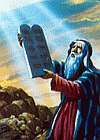 Moses is the one doing the reviewing. So he receives the tables.
Moses is the one doing the reviewing. So he receives the tables.
|
 They were scared of the fire and of dying. Deuteronomy 5:25 "Now therefore, why should we die? For this great fire will consume us; if we hear the voice of the LORD our God anymore, then we shall die."
(NKJV)
They were scared of the fire and of dying. Deuteronomy 5:25 "Now therefore, why should we die? For this great fire will consume us; if we hear the voice of the LORD our God anymore, then we shall die."
(NKJV)
5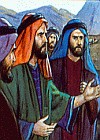 They wanted God to talk only to Moses.
They wanted God to talk only to Moses.
|
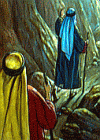 He would speak all commandments, statutes, and judgments that were to be taught the people beside the 10 commandments.
He would speak all commandments, statutes, and judgments that were to be taught the people beside the 10 commandments.
7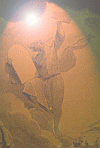 He spoke everything that was to be taught the people at this time.
He spoke everything that was to be taught the people at this time.
|
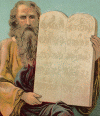 First of all, the Ten Commandments!
First of all, the Ten Commandments!
9 Love the stranger (implication is that orphans (fatherless) are included).
Love the stranger (implication is that orphans (fatherless) are included).
|
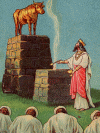 Destroy places of idolatry (in the promised land). No Christian has this mandate.
Destroy places of idolatry (in the promised land). No Christian has this mandate.
11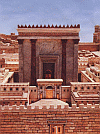 The place was later identified to be Jerusalem. So although Jerusalem was non-existent at this time, she indirectly becomes a part of the Ten Commandment covenant.
The place was later identified to be Jerusalem. So although Jerusalem was non-existent at this time, she indirectly becomes a part of the Ten Commandment covenant.
|
13 The covenant God commanded Moses to make with Israel while in the land of Moab. This was `beside` the Horeb (Sinai) covenant.
The covenant God commanded Moses to make with Israel while in the land of Moab. This was `beside` the Horeb (Sinai) covenant.
|
15 |
 A future prophet was coming.
A future prophet was coming.
17 The people desired God to do it that way.
The people desired God to do it that way.
|
 God's Words.
God's Words.
19 God makes His will known through visions and dreams to His prophets.
God makes His will known through visions and dreams to His prophets.
|
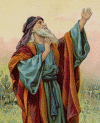 Whom does the prophet quote? The Lord God.
Whom does the prophet quote? The Lord God.
21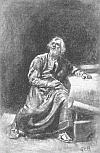 The writer and PROPHET Isaiah.
The writer and PROPHET Isaiah.
|
 God did speak by these prophets.
God did speak by these prophets.
23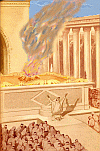 Offerings were required to take away sins.
Offerings were required to take away sins.
|
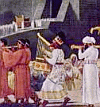 Instrumental music.
Instrumental music.
25 God's prophets spoke God's order on music.
God's prophets spoke God's order on music.
|
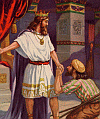 David was one of the main writers of the book of Psalms in the Bible. He was a prophet of God. God used his mouth.
David was one of the main writers of the book of Psalms in the Bible. He was a prophet of God. God used his mouth.
27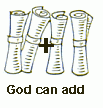 God could add as needed. Man could not.
God could add as needed. Man could not.
|
28 Man could not `take away` or diminish from the covenant of God.
Man could not `take away` or diminish from the covenant of God.
|
29 Man could not change God's Law by "adding".
Man could not change God's Law by "adding".
|
30 Man could not change God's Law by subtracting from it.
Man could not change God's Law by subtracting from it.
|
31 In a book.
In a book.
|
32 In a book.
In a book.
|
33 He gave the Law to the priests and the elders.
He gave the Law to the priests and the elders.
|
34 In the side of the "ark of the covenant".
In the side of the "ark of the covenant".
|
35 Moses was as god to Pharaoh; and Aaron was his prophet to Pharaoh.
This illustrates the meaning of the word "prophet" as God meant it.
Moses was as god to Pharaoh; and Aaron was his prophet to Pharaoh.
This illustrates the meaning of the word "prophet" as God meant it.
|
36 A "prophet" is a `mouth` for his `god`. [Not that Moses was a god, but he was serving as a `god` in this context and relationship].
A "prophet" is a `mouth` for his `god`. [Not that Moses was a god, but he was serving as a `god` in this context and relationship].
|